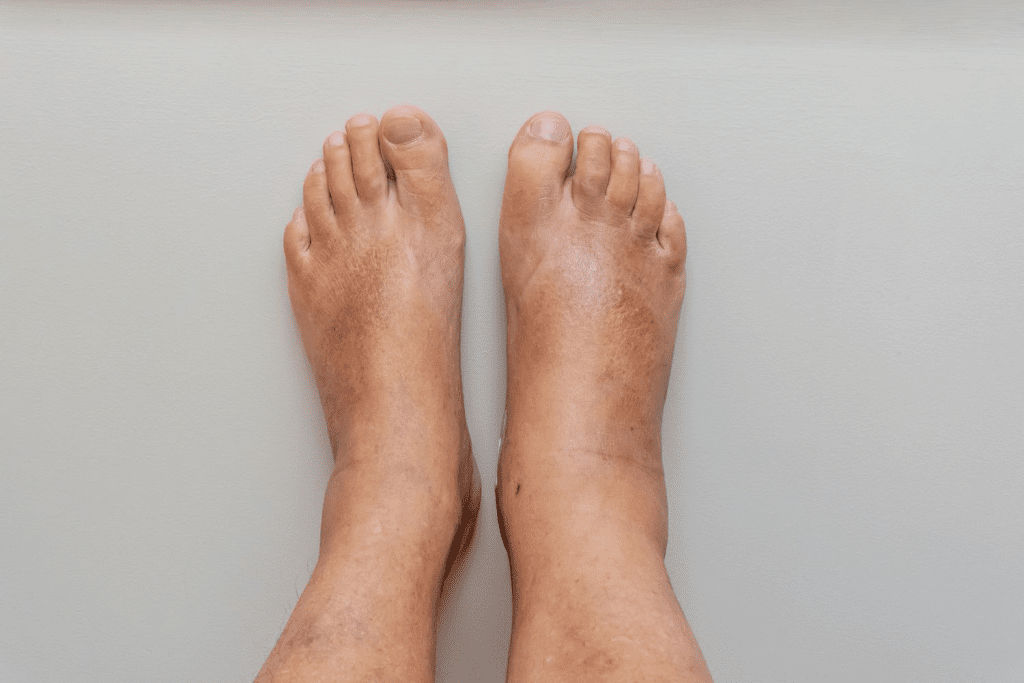Atherosclerosis, or the buildup of plaque in the arteries, is a silent but serious condition. Over time, cholesterol and other substances form deposits that restrict blood flow to vital parts of the body, including the heart, brain, and limbs. If left unchecked, clogged arteries can lead to life-threatening events like heart attacks or strokes. Understanding the warning signs and seeking early treatment is critical to preventing severe complications.
1. Chest Pain (Angina)

Chest pain, often referred to as angina, is one of the most recognizable signs of clogged arteries. Angina is typically felt as a heaviness, pressure, or squeezing sensation in the chest. The discomfort may extend to the arms, neck, or jaw. This pain usually occurs during physical activity or stress when the heart needs more blood but isn’t receiving enough due to arterial blockages.
If you experience chest pain, especially if it’s recurring, it’s a red flag that should not be ignored. Immediate medical attention can help identify the severity of the condition and prevent further complications, such as a heart attack.
2. Shortness of Breath
Shortness of breath, particularly during activities that were once easy, can be an indicator of clogged arteries. When the arteries are blocked, your heart struggles to pump enough blood to the rest of your body. As a result, even minor exertion can leave you feeling winded or fatigued.
Persistent shortness of breath should be discussed with a healthcare provider, as it can be a sign of serious cardiovascular issues that require timely intervention.
3. Fatigue
Do you feel exhausted even after a good night’s sleep or find it difficult to complete daily tasks? Unexplained fatigue is another common sign of clogged arteries. When your heart works harder to pump blood through narrow arteries, it drains your energy, leaving you feeling perpetually tired.
Chronic fatigue, especially when combined with other symptoms like chest pain or shortness of breath, should prompt you to seek a medical evaluation.
4. Dizziness or Lightheadedness
Feeling dizzy or lightheaded can be linked to clogged arteries reducing blood flow to your brain. This symptom can become more pronounced when you stand up too quickly or after physical exertion. If dizziness or lightheadedness becomes frequent, it’s important to consult your doctor, as it may be an early warning sign of arterial blockage.
5. Swelling in the Legs, Ankles, or Feet (Edema)

Swelling in your lower extremities, known as edema, can occur when your heart isn’t pumping blood effectively due to clogged arteries. When blood flow is restricted, fluid can accumulate in your feet, ankles, or legs.
This condition may indicate congestive heart failure or advanced cardiovascular disease and requires immediate medical attention to prevent further complications.
6. Heart Palpitations
Heart palpitations, characterized by an irregular heartbeat, can feel like your heart is racing or fluttering unexpectedly. While occasional palpitations aren’t usually harmful, frequent or severe episodes may signal underlying cardiovascular issues, including clogged arteries.
If you experience frequent heart palpitations, it’s crucial to speak with your doctor to rule out any serious conditions.
7. Erectile Dysfunction (ED)
For men, erectile dysfunction can be one of the earliest signs of clogged arteries. ED often occurs because restricted blood flow affects the ability to maintain an erection. The small arteries in the penis are particularly susceptible to atherosclerosis, and ED may serve as an early warning of cardiovascular issues.
Discussing this symptom with a healthcare provider can lead to early detection and treatment of arterial blockages, potentially improving both heart health and sexual function.
8. Jaw or Throat Pain

Jaw or throat pain, often mistaken for a dental or muscle issue, can sometimes be linked to heart problems. This pain may occur during physical activity and feel like pressure or tightness. If this discomfort is accompanied by other symptoms such as chest pain or shortness of breath, it could be related to clogged arteries.
Seeking prompt medical attention can help identify whether these symptoms are heart-related and prevent further complications.
9. Numbness or Weakness in the Limbs
Sudden numbness or weakness in your arms or legs, especially on one side of the body, can be a warning sign of a stroke. This condition is often caused by a blocked artery preventing oxygen-rich blood from reaching the brain.
If you experience numbness, weakness, or difficulty speaking, it’s vital to seek emergency medical care immediately, as prompt treatment can reduce the risk of long-term damage.
10. Slow Healing of Wounds

If you notice that small cuts or bruises take a long time to heal, it may indicate poor circulation caused by clogged arteries. Reduced blood flow can hinder the body’s natural healing process and increase the risk of infections.
Consulting with a healthcare provider can help identify any underlying cardiovascular issues and ensure timely treatment.
What To Do if You Notice These Signs
If you recognize any of these warning signs, don’t wait. Seeking medical attention is critical for diagnosing and treating clogged arteries. Your doctor may recommend several diagnostic tests, such as blood work, an electrocardiogram (EKG), or an angiogram, to assess the extent of arterial blockages.
Depending on the results, treatments may range from lifestyle changes to medications, or in more severe cases, surgical interventions like angioplasty or bypass surgery.
Steps to Prevent Clogged Arteries

Preventing clogged arteries requires a proactive approach. Here are some strategies you can adopt:
- Maintain a Heart-Healthy Diet: Focus on whole grains, lean proteins, healthy fats, and plenty of fruits and vegetables. Avoid foods high in saturated fats and cholesterol.
- Exercise Regularly: Engage in at least 30 minutes of moderate exercise daily to keep your heart strong and your arteries clear.
- Quit Smoking: Tobacco use significantly increases the risk of arterial blockages and cardiovascular diseases.
- Manage Stress: Chronic stress can contribute to heart disease. Practicing relaxation techniques like meditation or deep breathing can help reduce stress levels.
- Monitor Your Health: Regular check-ups with your healthcare provider can catch problems early, including high blood pressure and high cholesterol levels, which contribute to arterial plaque formation.
Conclusion
Clogged arteries don’t usually show immediate signs, but recognizing the warning signals early can save your life. Symptoms like chest pain, shortness of breath, dizziness, and fatigue should never be ignored. Taking action—whether through medical intervention or lifestyle changes—can significantly reduce the risk of serious complications like heart attacks and strokes. Stay proactive about your heart health, and listen to your body when it’s trying to tell you something is wrong.


